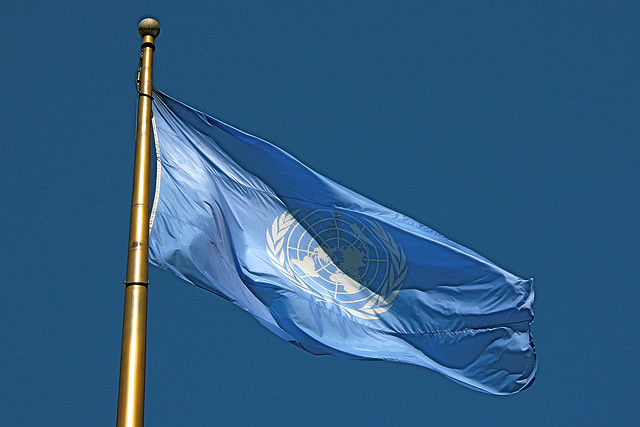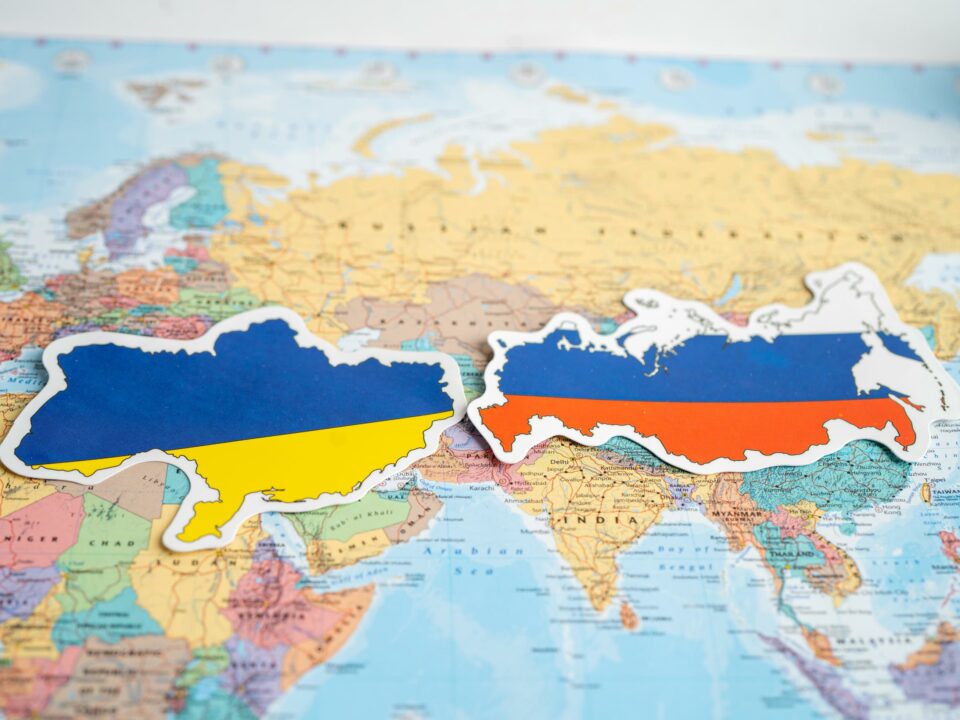
Sexual Offences Prevention Orders
May 8, 2013
Non-Fatal Offences Against the Person: Where to Now?
May 21, 2013The ideal development of an international world would interpret that order is necessary and chaos is detrimental to a just and stable existence between all subjects. These subjects, whether they are small or large, powerful or weak, have created a framework of recognised values and principles within which to develop. Law is perceived as the element which binds the subjects together in their obedience to customary rules and doctrines. International law rules and the rule of international law imply authority over its subjects.
However, it must be highlighted that international law’s authority is justified only if it has the right to rule — in other words, the right to create duties to obey on the part of its subjects. Ultimately, the law allows individuals to institute their own legal relations with rights and duties, but the law also acts as a deterrent and punishes those who violate its regulations. Sovereign states are the primary subjects of binding international law norms. Interestingly, one of the main challenges to the legitimacy of international law is that it allegedly fails to respect the sovereignty of states, intruding upon domains in which they should be free to make their own decisions.[1]
Concept of state
Sovereign equality is the concept in which every sovereign state possesses the same legal rights as any other sovereign state in international law. International law is based on the concept of state and the state in its turn lies upon the foundation of sovereignty, which expresses internally the supremacy of the governmental institutions and externally the supremacy of the state as a legal person.[2] It follows that sovereignty itself is founded upon the concept of territory and without territory a legal person cannot be a state, since there has not been an exclusive exercise of power over the territory.
Law is perceived as the element which binds the subjects together in their obedience to customary rules and doctrines.
When Kosovo declared its independence from Serbia in 2008, the United States were the first country to recognise Kosovo as an independent state, followed by France, Germany and many others. However, from an international law perspective, what does this mean? Does this mean that any sub-region of a given country can simply declare its independence and enter statehood? And what are the effects of recognition by other states?
Section 201 of the Restatement (Third) of the Foreign Relations Law of the United States (1987) defines a state as follows:
[U]nder international law, a state is an entity that has a defined territory and a permanent population, under the control of its own government, and that engages in, or has the capacity to engage in, formal relations with other such entities.
It is peculiar that the provision does not mention anything about recognition by other states. Is recognition necessary for an independent state to exist? Some have advocated that it is the recognition by other states that makes an entity become a state, whilst others argue that by fulfilling the above mentioned criteria it is already considered a state under international law. However, these conditions have not been clearly established in a particular case and their determination ultimately depends upon assessment by other states by means of recognition.[3]
Pre-legal dimension of power
As a legal status, sovereignty is constituted and defined by legal texts, together with accepted and acknowledged practice, although the term ‘sovereignty’ still connotes a pre-legal dimension of power.[4] It holds specific functions as demonstrated by internal sovereignty and external sovereignty:
Internal sovereignty had been developed with a view to the relationship between the state (or its institutions) and non-state actors spatially located within the territory of that state (the church, local rulers, and the estates; today arguably the people and organizations of civil society) and it is ascribed to the state as a body-politic, and to persons or groups within that state. External sovereignty is connoted with certain rights and obligations and refers to the relationship between states in their quality as international legal persons vis-à-vis other states or other international legal persons, but does not necessarily refer to things happening outside the state’s territory.[5]
Both internal and external sovereignty should be perceived as two parallel scopes of the same characteristic of the state with a common goal of directing uniformity and equality to the division of powers. Benedict Kingsbury states that the concept of sovereignty has brought relief for international lawyers in the following three ways:
Interestingly, one of the main challenges to the legitimacy of international law is that it allegedly fails to respect the sovereignty of states…
1. It underpins a principle of sovereign equality that has almost attained an ontological position in the structure of the international legal system. This ontological status makes enough difference in the processes of international law and politics to modestly vindicate the significance and effectiveness of the system of sovereign equality. Thus, very small states are procedurally on equal footing with the largest or most powerful states in the International Court of Justice and groups of small states have made some difference in the dynamics of multilateral bargaining on issues such as climate change.
2. It allows questions of social and economic inequality among people to be treated in international law as a responsibility of territorial states. International law and legal institutions are able to promote market activity, while in theory leaving the responsibility of mitigating social and economic inequalities associated with markets to states.
3. It provides the means by which people can express and be deemed to have expressed consent to the application of international legal norms and to international institutional competences.[6]
The right to make war
Nowadays, the vitality of sovereign equality appears to be subject to the much controversial topic of the right to make war.[7] Note that on the one hand, the UN Charter distinctly articulates that:
[A]ll Members shall refrain in their international relations from the threat or use of force against the territorial integrity or political independence of any state, or in any other manner inconsistent with the Purposes of the United Nations. [8]
On the other hand, however, under the UN Charter proclaiming the post-World War II legal framework for the sovereign right to wage war, each of the 193 distinct sovereign states has an equal right to make war for one of two reasons:
1. A state may wage war in individual or collective self-defence if an armed attack occurs. [9]
2. A state may wage war if the UN Security Council determines the existence of any threat to the peace, breach of the peace or act of aggression [10] and authorises that it is necessary to maintain or restore international peace and security.[11]
Nowadays, the vitality of sovereign equality appears to be subject to the much controversial topic of the right to make war.
What appears to be problematic is, although the fact that sovereignty is probably the most important legal concept in international politics, powerful states have long been capable of taking advantage and violating the sovereignty of others. Nevertheless, the principle has tolerated today’s political platform and still continues to be the definition for fundamental legal and moral prominence of political agents.
What to expect now
Sovereignty works best when all the states that enjoy such status get along reasonably well. What happens when they don’t? For example, North Korea’s vows to launch nuclear strike against the United States and South Korea have been a contentious matter of discussion and if acted upon would bring devastating results and an imbalance in the concept of a sovereign state. It is vital to reinforce the concept that all sovereign states have equal responsibilities and rights. This would preserve the sovereign state institution as a focal point to marshal cooperation and distribute rewards to those who help and to dole out retribution to those who aid the covert threat.[12]
[1] Samantha Besson, ‘Sovereignty, international law and democracy’ (2011) E.J.I.L. 373, at page 376
[2] R.Y Jennings and A.D Watts QC., (eds) Oppenheim’s International Law (9th edition, OUP 2008)
[3] Take for example the case of Northern Cyprus which is officially known as the Turkish Republic of Northern Cyprus. It has only been recognised by Turkey whereas it is considered by the international community as occupied territory of the Republic of Cyprus.
[4] Anne Peters, ‘Humanity as the alpha and omega of sovereignty’ (2009) E.J.I.L 513, at page 514
[5] Ibid, at page 516.
[6] Benedict Kingsbury, ‘Sovereignty and Inequality’ (1998) 9 E.J.I.L 599
[7] Thomas H. Lee, International Law, International Relations Theory and Preemptive War: the Vitality of Sovereign Equality Today’ (2004) L&CP 147, at page 149
[8] UN Charter – Chapter VII: Action with respect to threats to the peace, breaches of the peace and acts of aggression, Article 2(4)
[9] Ibid, Article 51
[10] Ibid, Article 39
[11] Ibid, Article 42
[12] Thomas H. Lee (n7), at page 166





